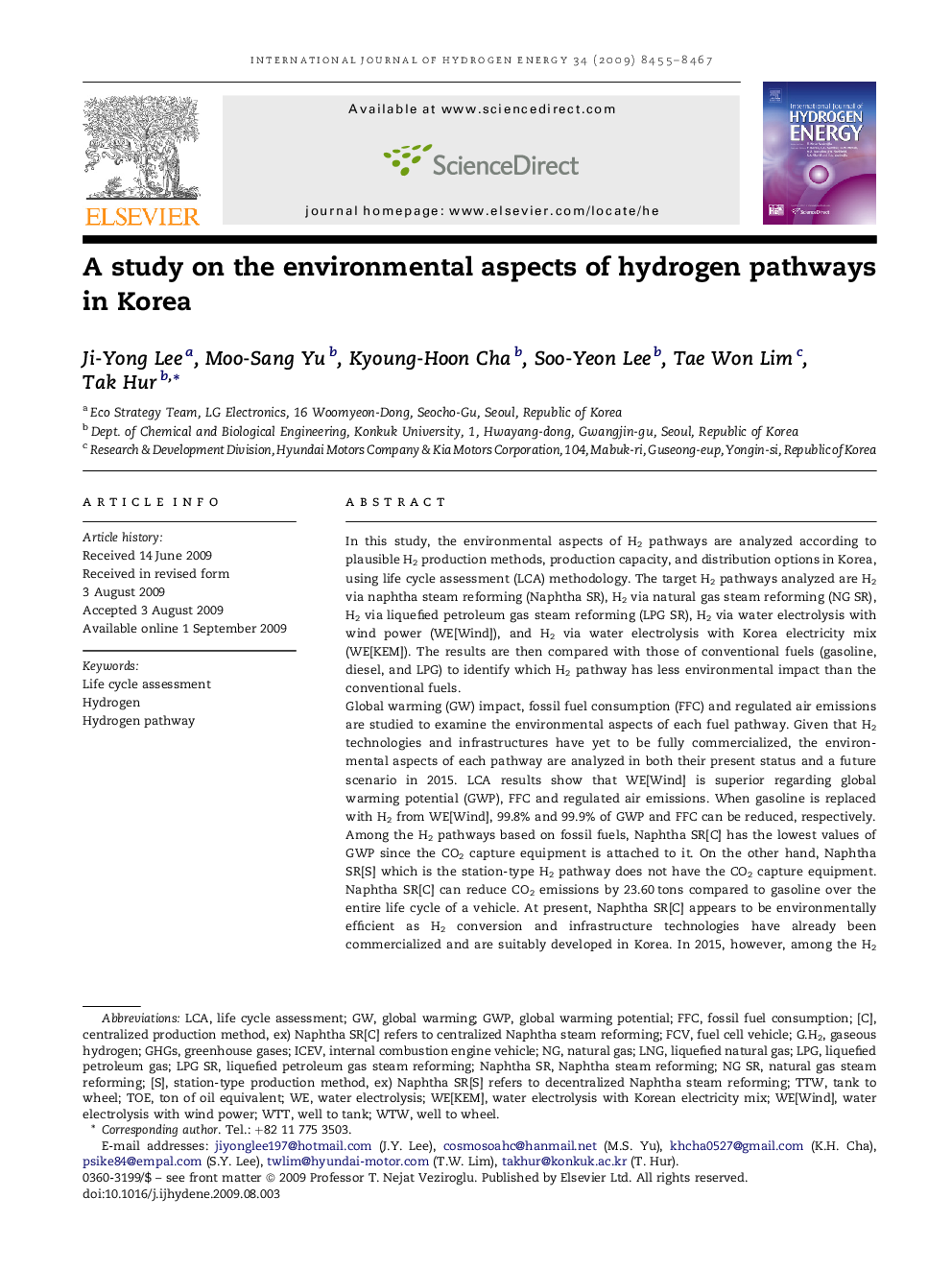| Article ID | Journal | Published Year | Pages | File Type |
|---|---|---|---|---|
| 1278421 | International Journal of Hydrogen Energy | 2009 | 13 Pages |
In this study, the environmental aspects of H2 pathways are analyzed according to plausible H2 production methods, production capacity, and distribution options in Korea, using life cycle assessment (LCA) methodology. The target H2 pathways analyzed are H2 via naphtha steam reforming (Naphtha SR), H2 via natural gas steam reforming (NG SR), H2 via liquefied petroleum gas steam reforming (LPG SR), H2 via water electrolysis with wind power (WE[Wind]), and H2 via water electrolysis with Korea electricity mix (WE[KEM]). The results are then compared with those of conventional fuels (gasoline, diesel, and LPG) to identify which H2 pathway has less environmental impact than the conventional fuels.Global warming (GW) impact, fossil fuel consumption (FFC) and regulated air emissions are studied to examine the environmental aspects of each fuel pathway. Given that H2 technologies and infrastructures have yet to be fully commercialized, the environmental aspects of each pathway are analyzed in both their present status and a future scenario in 2015. LCA results show that WE[Wind] is superior regarding global warming potential (GWP), FFC and regulated air emissions. When gasoline is replaced with H2 from WE[Wind], 99.8% and 99.9% of GWP and FFC can be reduced, respectively. Among the H2 pathways based on fossil fuels, Naphtha SR[C] has the lowest values of GWP since the CO2 capture equipment is attached to it. On the other hand, Naphtha SR[S] which is the station-type H2 pathway does not have the CO2 capture equipment. Naphtha SR[C] can reduce CO2 emissions by 23.60 tons compared to gasoline over the entire life cycle of a vehicle. At present, Naphtha SR[C] appears to be environmentally efficient as H2 conversion and infrastructure technologies have already been commercialized and are suitably developed in Korea. In 2015, however, among the H2 pathways based on fossil fuels LPG SR[S] is expected to be the best pathway in terms of FFC and regulated air emissions, while Naphtha SR[C] will likely have lowest impact on GW by that time as well.
